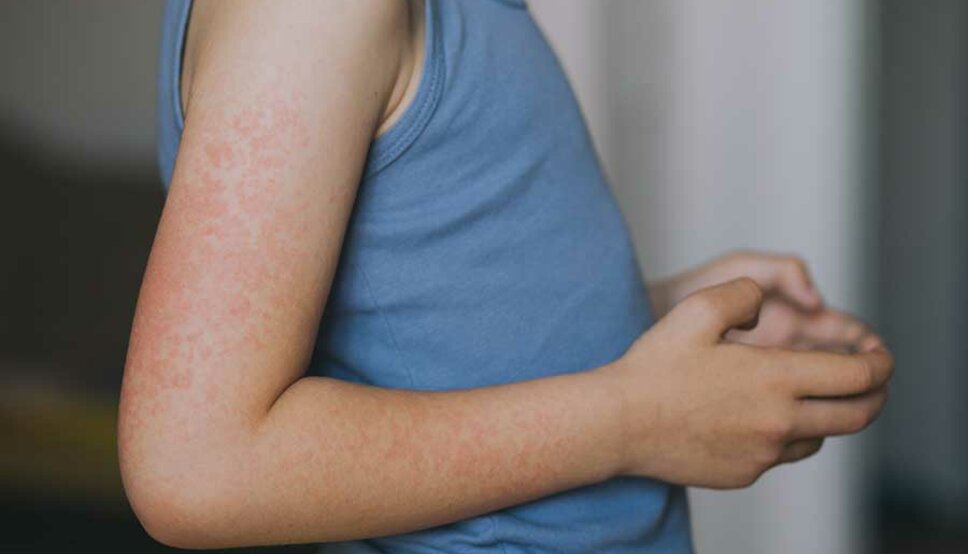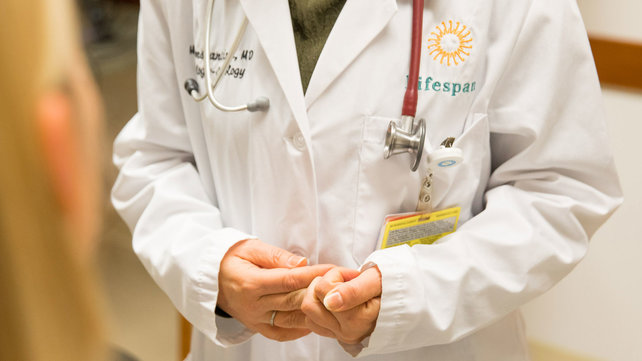Measles FAQ: What It Is, How It Spreads, and How to Avoid It

Following the development of the measles vaccine and efforts to routinely vaccinate children, cases of the disease dramatically decreased across the United States. Over the past decade, however, cases and outbreaks of measles have been climbing. Here’s what you need to know to keep yourself and your family safe.
What is measles?
Measles is the world’s most contagious infectious disease that spreads rapidly and can cause severe complications, including encephalitis and death.
How does measles spread?
Measles is caused by a virus that spreads through the air when an infected person coughs, sneezes, or even talks. The virus can survive in the air for as long as two hours. This means that a person can catch measles even after an infected person leaves the room.
What are the symptoms of measles?
The most common symptoms of measles are:
- High fever
- Runny nose
- Red eyes
- Cough
- Small white spots inside the cheeks
- Rash
Respiratory symptoms usually present by day ten, with the rash typically appearing at day 14 after exposure.
What are some of the complications of measles?
Measles is associated with many complications. These include:
- Diarrhea
- Ear infections
- Pneumonia
- Croup
- Weakened immune system
- Encephalitis (swelling of the brain; rarer forms occurring even years later)
People who have measles during pregnancy are at risk for pre-term delivery and babies with low birth weight.
Young children, pregnant people, and people with compromised (weakened) immune systems are at highest risk for severe complications.
How is measles treated?
There is no specific antiviral treatment for measles. Care is focused on helping manage symptoms while the virus runs its course. Getting rest, staying hydrated, and eating a healthy diet may help you feel better faster. Children with measles should receive Vitamin A supplement to help prevent serious complications.
If a person with measles develops a second infection caused by a bacteria (such as pneumonia or an ear infection), doctors may prescribe antibiotics.
How can measles be prevented?
The good news is measles, and its severe complications, can be prevented through vaccination. Children should receive two doses with either the MMR (measles, mumps, rubella) or MMRV (measles, mumps, rubella, varicella) vaccines. Adults born after 1957 who did not receive the vaccine in childhood and don’t have evidence of immunity should be vaccinated.
If you or your child are exposed or suspect you have been exposed to measles and are not immunized, you can talk to your primary care provider about getting vaccinated. Vaccination within three days of exposure to the virus can help prevent infection or lessen the severity of disease as well as protect you from future exposures.
Some people should not get the measles vaccine. Tell your health care provider if you:
- Have had a severe allergic reaction to a vaccine or a history of life-threatening allergies
- Are pregnant or may be pregnant
- Have a weakened immune system due to a disease or medical treatments
- Have recently had a blood transfusion or other blood products
- Have received other vaccines in the last four weeks
Both the MMR and MMRV vaccines have a long history of being safe and effective at preventing measles.
Contact your health care provider if you think you have been exposed to measles. As always, when you are sick: stay home, wear a mask, and practice good hand hygiene to help prevent the spread of disease and protect your community.
About the Author:
Kirsten d'Hemecourt, MD
Dr. Kirsten d'Hemecourt is a pediatric infectious diseases fellow at Hasbro Children's. Her interests include public health and epidemiology.
Find a Doctor

The right provider is in our network
Search more than 1,200 providers in our network.



